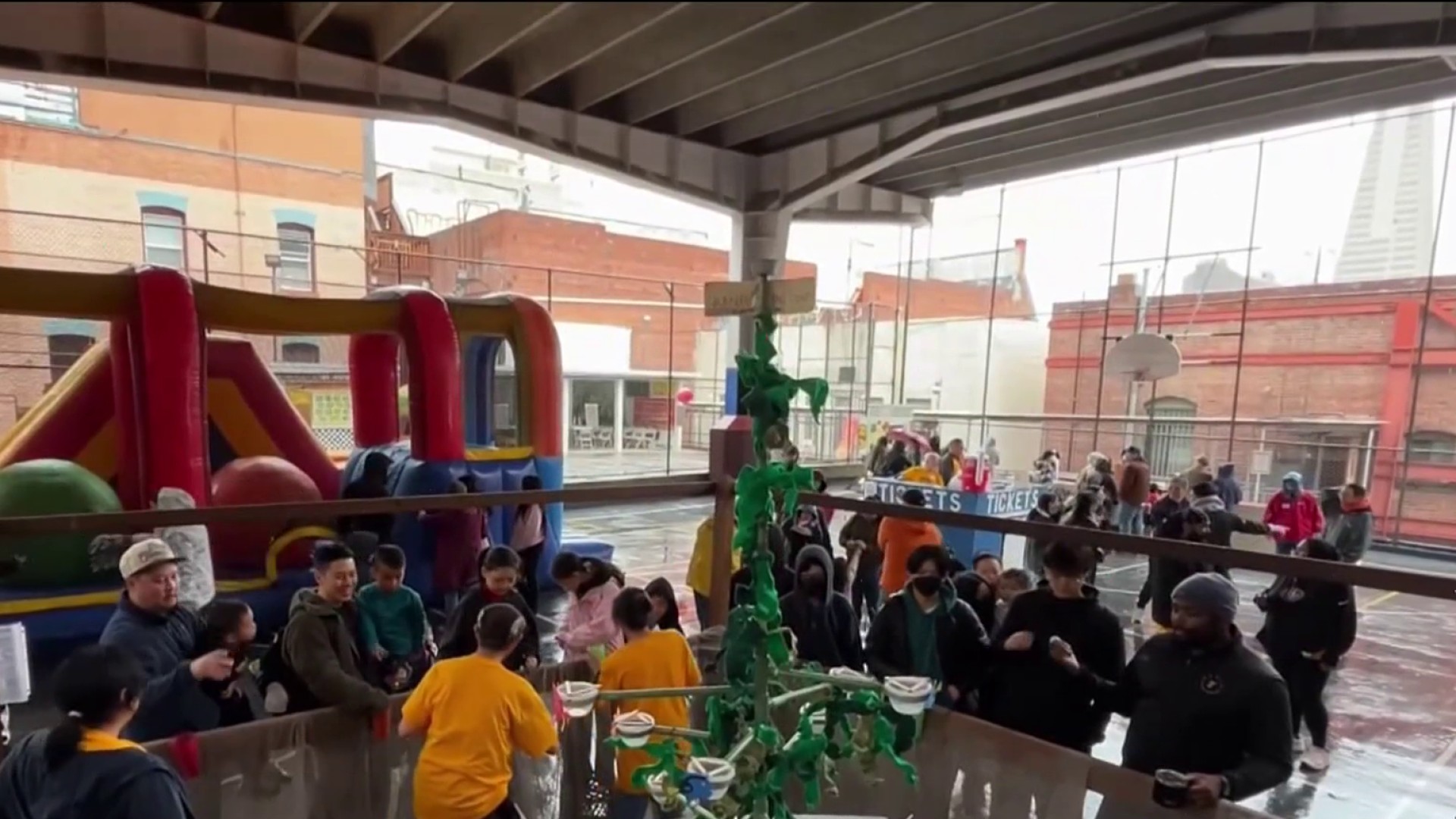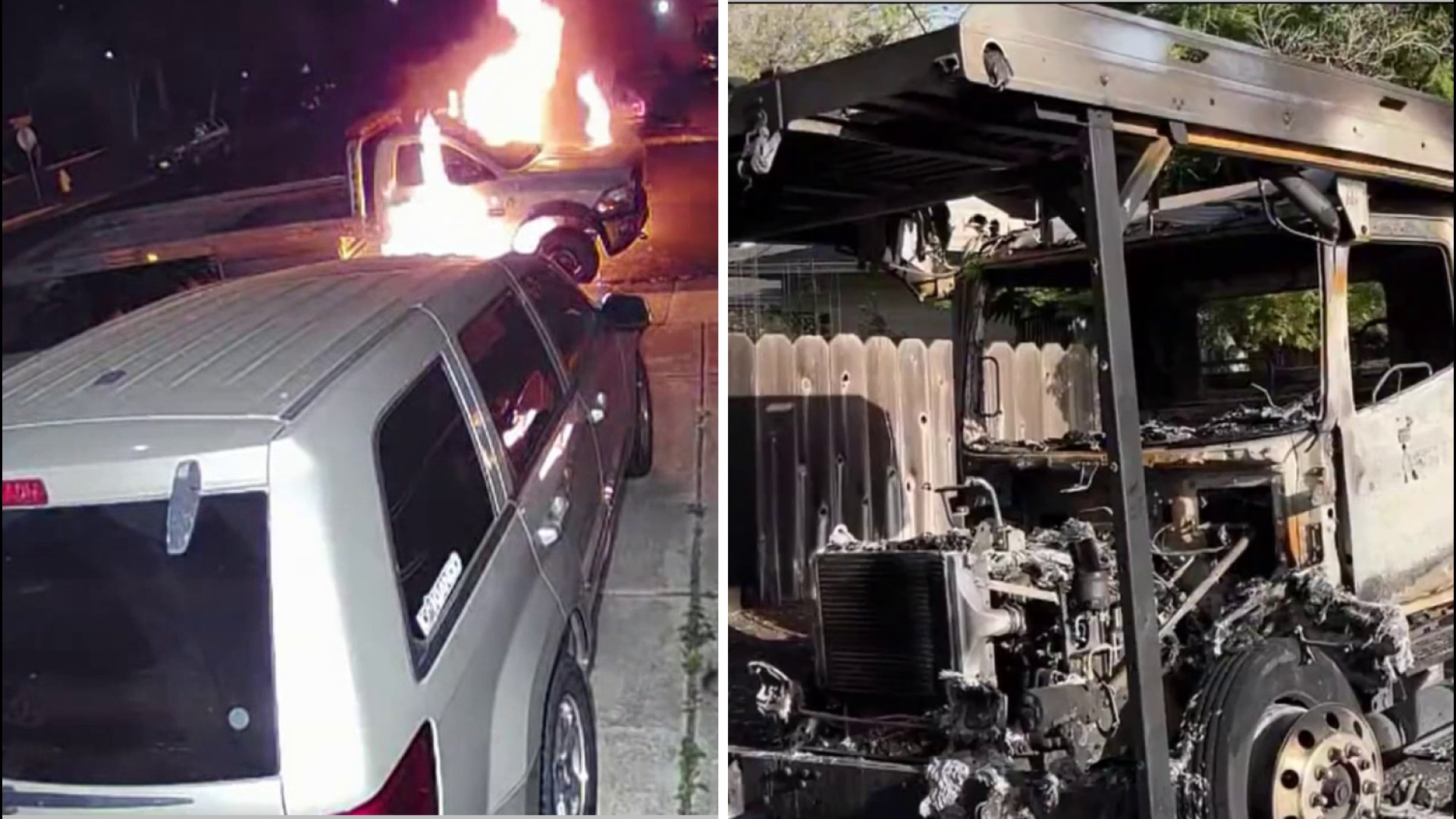Six-year-old Caleb Sears went to have a tooth pulled two years ago. He was sedated and never woke up.
“Once we had the information about his brain and consulted with neurologists, we realized that we had to let him go,” said Eliza Sears, Caleb’s mom.
Caleb’s dentist was legally doing double duty: surgery and general anesthesia. But investigators found gross negligence. So now, lawmakers are considering Caleb’s Law, which would require dentists to bring in an anesthesiologist when they put kids under.
But opponents - mostly dentists - are putting up a fight, claiming Caleb’s Law would trigger treatment delays in Denti-Ca, the state-run dental program for low-income families.
One dentist who oversees three Bay Area clinics tearfully told lawmakers about a child she claims died because he didn’t get dental care in time.
“He was four years old, and his death was completely unnecessary,” said Dr. Ariane Terlet. “This child died because he didn’t get into care early enough.”
NBC Bay Area tried to contact Terlet after the hearing to get some details about that child, but she didn't respond.
Local
Terlet’s dire Denti-Cal prediction echoes that of oral surgeons, who are specialized dentists who often do procedures and anesthesia solo. They oppose Caleb’s Law.
“That will not make our procedures safer, but instead potentiate a crisis in access to care for all Californians, but particularly those most vulnerable — the poor, the dental phobic, and our state’s kids,” said Dr. Jeffrey Elo, representing the Association for Oral Surgeons.
But Dr. Kenneth Pierson says that’s not true. He runs a dental surgery center near Fresno with his son, Jeremy Pierson. They say 95 percent of their patients are on Denti-Cal. Yet everyone gets a separate dentist and anesthesiologist.
“Every patient that comes into our surgery center has a full team of five licensed professionals,” said Jeremy Pierson.
The Piersons say their clinic is proof that Caleb’s Law won’t destroy Denti-Cal.
“It would not impact us at all,” said Kenneth Pierson.
We found dentists at another surgery center in Milpitas who operate on Denti-Cal kids as a team, too.
So, we wanted to test the doomsday claims made by Terlet and other oral surgeons. We called 400 clinics like Terlet’s, that are taking new Denti-Cal patients. We found only seven offer general anesthesia and five of them already operate with both a dentist and anesthesiologist.
As for the oral surgeons who predict a crisis of closed doors under Caleb’s Law, we found that their doors may not be open to begin with. We made more calls and found that only 13 percent of all California’s oral surgeons will accept a new Denti-Cal patient right now.
So, will the Sears’ family push to improve anesthesia force dentists to turn away needy Denti-Cal patients? We asked the Piersons how many they expect to refuse.
“None,” they said. “Absolutely none.”
The Piersons believe the oral surgeons’ real fear isn’t a public health crisis, it’s a personal financial loss. Oral surgeons who do procedures and general anesthesia get paid for both jobs. So, Caleb’s Law could cut their pay.
“They would have to share the fee,” Kenneth Pierson said.
The Association for Oral Surgeons disputes that, but insists that using two dentists to give kids general anesthesia is unnecessary.
“Our anesthesia delivery system is safe,” Elo insisted.
Not all oral surgeons agree. The one whose botched sedation led to Caleb’s death recently wrote a public letter saying he will stop doing procedures and general anesthesia by himself.
Kenneth Pierson says teamwork is the safest way for dentists to give general anesthesia to kids, and state law should demand it.
“I’m not convinced that it should be just children,” he said. "I believe that’s the safest way for all patients.”
Caleb’s Law will be voted on in a Senate committee meeting next Tuesday. If it passes, it’s another step forward. But supporters, including Caleb’s family, aren’t optimistic, because the opposition is so politically influential.



